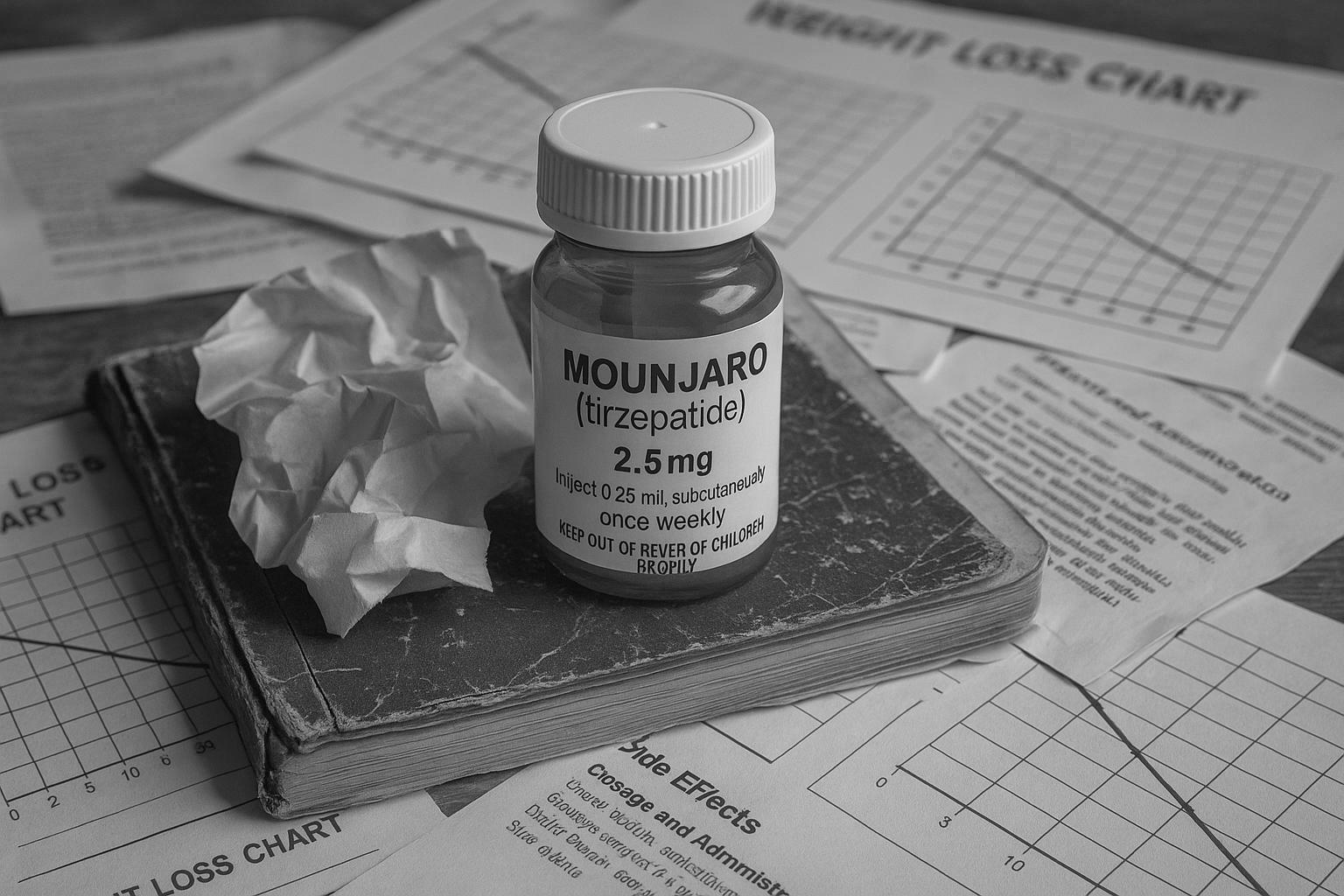Weight-loss injections such as Mounjaro (tirzepatide) have rapidly transformed obesity treatment options in the UK, profoundly impacting patients’ lives in ways that extend well beyond simple weight reduction. While these GLP-1 agonist drugs have been hailed for their effectiveness, patient experiences uncover a complex picture of benefit, risk, and unexpected health improvements.
Michelle Giles, a 42-year-old behaviour support assistant from Sutton, Greater London, credits Mounjaro with saving her son’s life. After being deemed too overweight for kidney donation surgery at 110kg and size 20, she lost approximately 30kg following the injections—enough to qualify for the operation. Her son Leo, who was born with only one kidney and faced severe chronic kidney disease with only 5% function remaining, received her donated kidney in April and has since regained normal kidney function. Michelle’s story highlights an important role these medications can play in preparing patients for critical surgeries where weight thresholds pose significant risks. Simon Davies, emeritus professor of nephrology and a trustee of Kidney Research UK, emphasised that losing weight before surgery can reduce complications related to anaesthesia, blood clots, and long-term kidney health for donors, making such treatments a “win for both sides.”
However, the benefits come with potential side effects and complications. Julie Bishop, 55, from North Tyneside, shared her experience of developing severe pancreatitis shortly after starting Mounjaro, leading to hospital admissions and ongoing digestive issues. Pancreatitis is recognised as a rare but serious side effect of GLP-1 agonists, which experts explain may occur due to gallstone formation and blockage of the pancreatic duct. Christian Macutkiewicz, a consultant surgeon, noted that while many pancreatitis cases linked to these drugs are mild, the condition can escalate to a life-threatening stage, underscoring the need for careful monitoring. Official medical sources list nausea, diarrhoea, and abdominal pain among common side effects, with more serious reactions such as pancreatitis being less frequent but critical to identify early.
Contrasting these challenges, other accounts suggest broader health benefits beyond weight loss. Michelle Holmes, 57, a training consultant from Durham, experienced a marked improvement in her asthma after starting Mounjaro—an unexpected but welcome outcome that even her asthma nurse described as “amazing.” Dr Andrew Whittamore, a GP and clinical lead for the charity Asthma and Lung UK, explained that the anti-inflammatory effects of GLP-1 agonists may reduce asthma symptoms independent of weight loss, though the exact mechanism remains unclear. This finding adds nuance to the conversation around these drugs, indicating potential advantages in managing inflammatory conditions alongside obesity.
Another patient, Lisa Bell, 58, from County Durham, found that Mounjaro enabled her to lose 4st in six months, which was essential to qualify for a needed hysterectomy due to cysts in her womb. Consultant bariatric surgeon Zaher Toumi highlighted that weight loss before surgery improves technical feasibility and lowers risks such as infections and blood clots, making access to surgery possible for many patients. Lisa’s experience, alongside Michelle Giles’s, reflects how weight-loss medications can be pivotal in preparing patients for critical medical interventions that would otherwise be too risky.
On a broader scale, the European Association for the Study of Obesity has recommended GLP-1 agonists like Mounjaro and Novo Nordisk’s semaglutide be considered first-line treatments for obesity, given their significant efficacy and benefits for coexisting conditions like heart disease, stroke, type 2 diabetes, and fatty liver disease. These non-binding guidelines underscore the transformative potential of such drugs in weight management while acknowledging concerns related to cost, side effects, and the need for lifestyle modifications to sustain long-term benefits.
Nevertheless, the proliferation of weight-loss injections has also led to challenges with drug safety and authenticity. Pharmaceutical giant Eli Lilly, maker of Mounjaro, recently uncovered counterfeit versions of tirzepatide—some contaminated with bacteria or composed of ineffective substances—circulating in unregulated clinics and compounding pharmacies. This discovery has prompted legal action to protect patients from unsafe products, highlighting the risks of poor regulation amidst soaring demand. Novo Nordisk faced similar issues with counterfeit semaglutide products, raising concerns about the integrity of weight-loss medications in grey markets.
Regulatory developments are underway as well. The FDA approved a new formulation of tirzepatide branded as Zepbound for weight loss in the US, demonstrating potential to help users lose between 40 to 60 pounds. However, around 10% of trial participants discontinued due to gastrointestinal side effects, and estimated monthly costs near $1,000 may limit accessibility, a situation likely to reflect challenges faced internationally.
In summary, weight-loss jabs such as Mounjaro offer promising avenues for tackling obesity and associated health conditions, as vividly illustrated by the personal stories of patients regaining quality of life and medical eligibility. Yet, these benefits are tempered by risks including serious side effects and the circulation of counterfeit products. Ongoing research, careful medical supervision, and regulatory vigilance remain essential to maximise the life-changing potential of these treatments while safeguarding patient safety.
📌 Reference Map:
- Paragraph 1 – [1], [4], [5]
- Paragraph 2 – [1], [4], [5]
- Paragraph 3 – [1], [4], [5]
- Paragraph 4 – [1], [4], [5]
- Paragraph 5 – [1], [4]
- Paragraph 6 – [2]
- Paragraph 7 – [3]
- Paragraph 8 – [6]
- Paragraph 9 – [1], [2], [3], [4], [5], [6]
Source: Noah Wire Services
